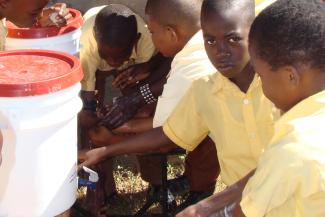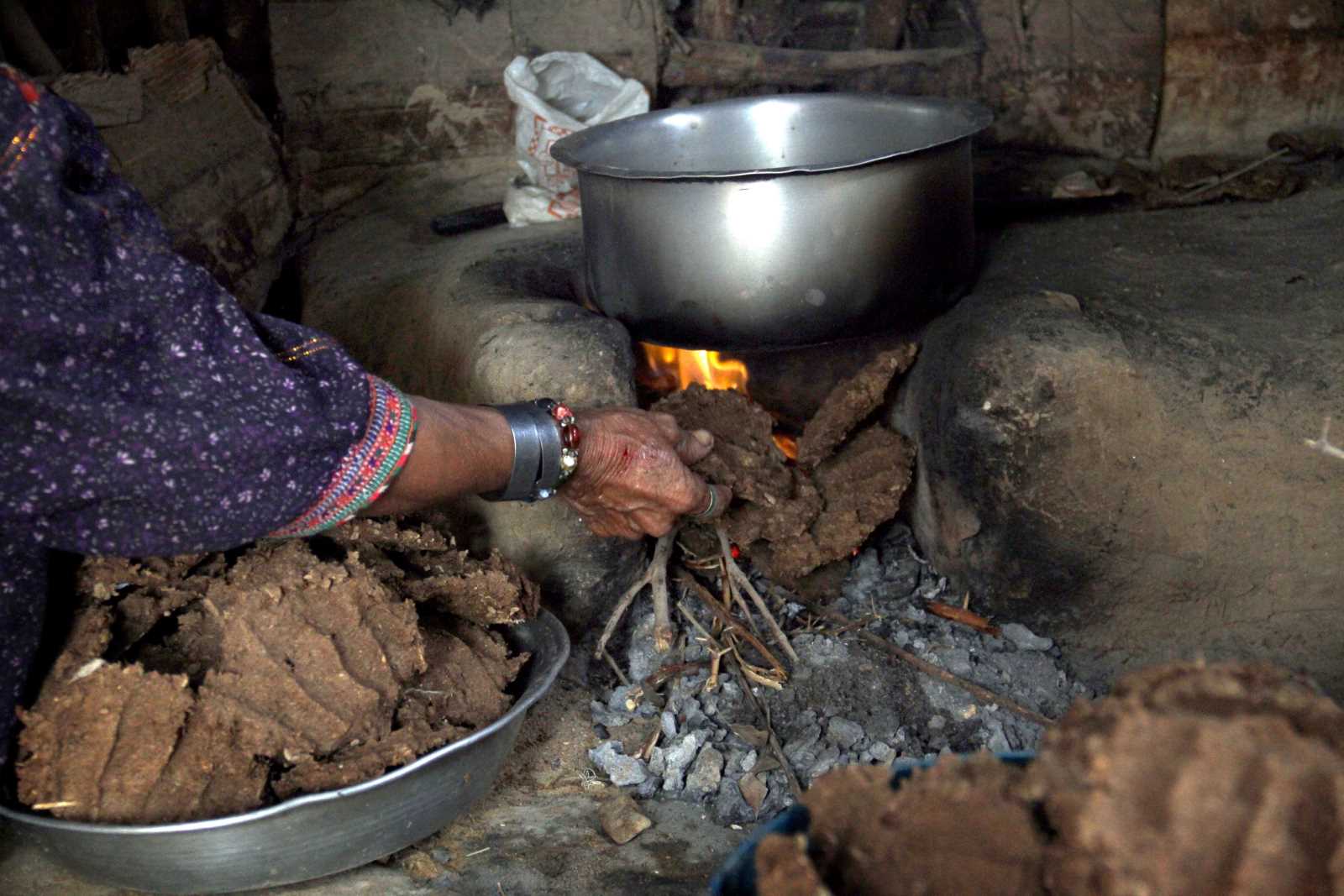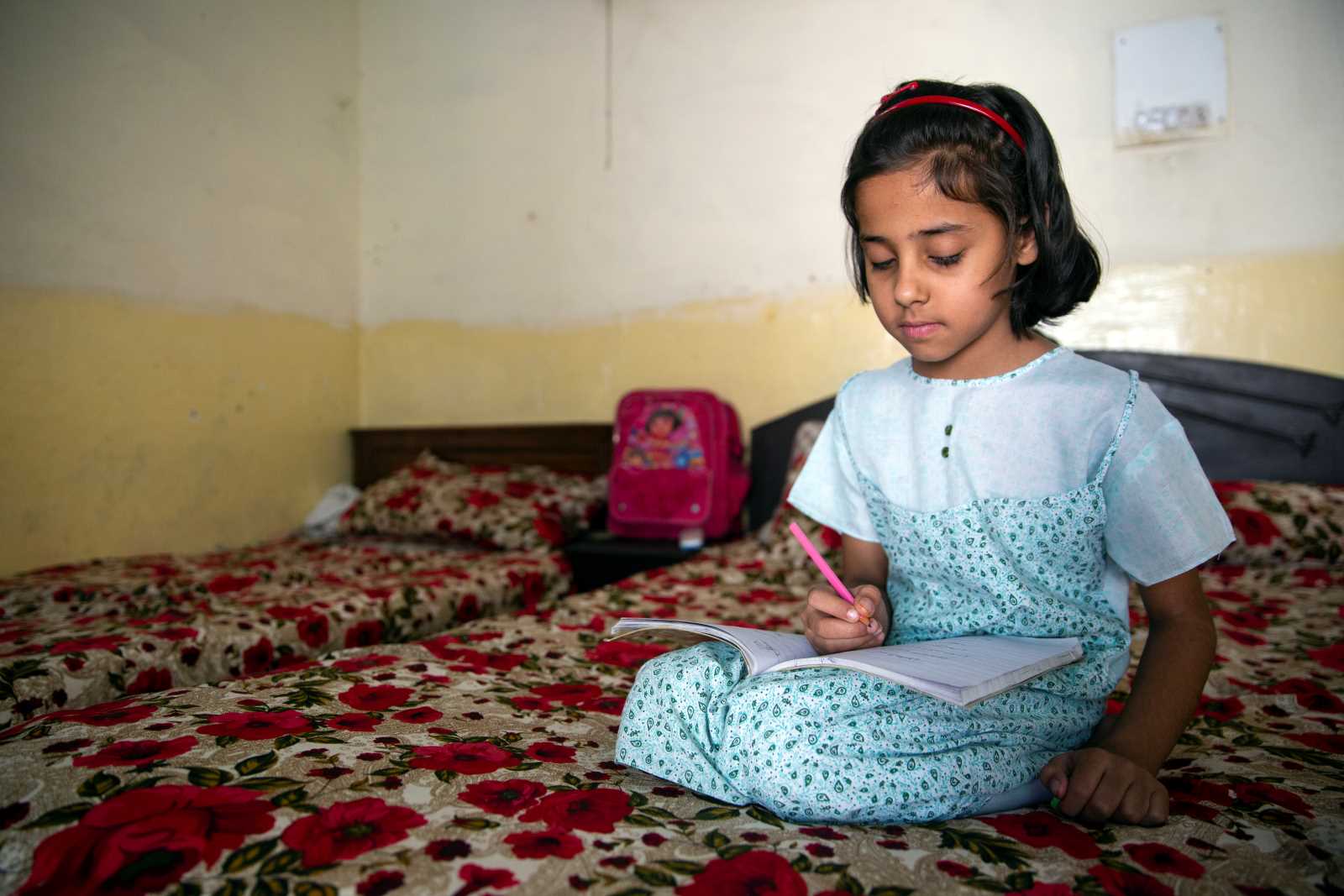School health
Healthy children

When children go to school, they have to be healthy to learn. And they must learn to stay healthy. That is the motto of school-health programmes. School-aged children rarely die, but if they are ill or malnourished, they have trouble paying attention in class, are absent too often and sometimes are not enrolled in school at all.
Such problems add up to an enormous loss of intellectual potential. Chronic malnourishment, anaemia or worm infestations can cost children IQ points, experts say. Researchers estimate that approximately 45 million people worldwide are living with a mild mental disability that could have been prevented in childhood.
Schools offer an excellent starting point for health education because they are well-established and respected institutions. School-health programmes, moreover, are one of the cheapest ways to improve public health. Deworming costs about a tenth of the price of a school meal and only a twentieth of the price of subsidies for school uniforms. In addition, health and nutrition programmes that are directed at schoolchildren contribute to better-quality education.
At the World Education Forum in Dakar in 2000, the United Nations (WHO, World Bank, UNESCO and UNICEF) and non-governmental organisations (NGOs) came together to lay the foundation for FRESH, an initiative aimed at "Focusing Resources on Effective School Health". It includes the following demands:
There must be equitable, health-related school policies, including rules regarding the sale of food in schools and regulations that would allow teenage mothers to attend school. In many countries, very young mothers are forced to leave school.
Schools must be safe and hygienic learning environments, for instance with sinks and soap to wash hands and separate toilets for boys and girls. Adequate sanitation facilities are especially important for teenage girls so that they do not skip school during their menstrual cycles.
Health education must be centred on children and provide practical tips on healthy behaviour. Health-related topics should be incorporated into language, maths, science and social-studies classes. Children can practice their arithmetic skills by calculating the dimensions of a latrine or learn how to determine the iodine content of salt in chemistry class. Sex education is essential in order to reduce the risk of HIV/AIDS infections.
School-aged children must get appropriate health and nutrition services. These must typically include deworming, distribution of vitamins and iron supplements and making sure that schools have an adequate supply of first-aid kits. Schools should also check students’ vision and hearing on a regular basis. Primary-school teachers can easily perform the required tasks.
Haitian experience
Save the Children runs school-health programmes in 32 countries. The international NGO reached approximately 3.5 million children in 2012. Some of those children live in Haiti, where Henock Savain directs the Department of Health in Déssalines. Savain reports that ever since the cholera outbreak that followed the devastating earthquake in January 2010, there has been a growing awareness of Haiti urgently needing health education and treatment centres. "Save the Children helped us on both fronts, particularly with regard to health education in schools," Savain says.
According to Savain, the largest problem in Haiti at the moment is getting medication to people in need. "Therefore we asked Save the Children to provide us with medicine so that we can treat schoolchildren when they become ill," he reports. Schools can now offer basic medication and a consultation free of charge, thus giving students a kind of health insurance.
Savain states that, although Haiti receives a great deal of international aid, local authorities are left to their own devices when it comes to providing health care. "We sometimes have to travel to villages on horseback in order to make sure that everyone is vaccinated," he says. Government authorities in charge of health, education and sanitation typically fail to cooperate properly, Savain adds. He has taken steps towards solving that problem. Four times a year, NGOs and other relevant actors meet in Déssalines to coordinate their efforts to improve public health. Savain also drafts an annual plan of action. Thanks to these measures, cooperation has improved in his area.
Marie Michel Napoléon, the director of the state school for girls in Déssalines, believes that school-health programmes have greatly benefitted local children. "Earlier, the classrooms were always dirty. Now the children throw rubbish in the bin," she says.
A mother of a school girl says that parents and teachers are clearly aware of the effects brought about by better nutrition. "When children get vitamins and iron supplements at school, they eat and sleep well," she confirms. In her opinion, children in the area now have a newfound appreciation for cleanliness. They make sure that their water is treated with chlorine, and they no longer go barefoot because they know that they could be infected with hookworms.
Caroline Sölle de Hilari is a medical doctor who works for Save the Children as an expert on school health in Latin America and the Caribbean.
chilari@savechildren.org
References:
School health: http://www.schoolsandhealth.org/pages/default.aspx
UNESCO, UNICEF, UNODC, World Bank, WHO, Save the Children, Partnership for Child Development, Education International, EDC, AIR, 2013: Monitoring and evaluation guidelines for school health programmes: Eight core indicators to support FRESH (Focusing Resources on Effective School Health).
http://www.unesco.org/new/health-education










